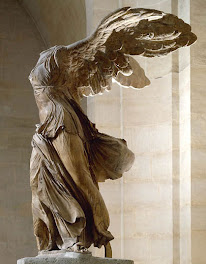
(Lo publico hoy para desentrañar el misterio del pozo)
(I'm publishing it today so that the well mystery is solved)
"--¿Es usted pariente de Lucas Mulero?--preguntó María
--Lo era--contestó secamente la mujer.
A pesar de lo desabrido de su respuesta, la mujer parecía dispuesta al diálogo. Hizo sentar a María en una sillita de paja delante de la puerta de la casa, a la sombra de la morera. La mujer le dijo que era la viuda de Lucas Mulero y que a éste lo mató uno del pueblo cuando empezó la Guerra Civil.
--Mire usted--continuó--mi Lucas tuvo muy mala suerte, porque era republicano, y Candera estuvo desde el principio en manos de los republicanos, pero como había poca política por aquí, no mataron a nadie. Ya ve usted, respetaron hasta a Don Antero, el cura de ahora, que es el mismo que estaba antes de la guerra. Lo único que hicieron de malo a don Antero fue obligarle a llenar sacos de tierra para hacer trincheras.
Tras un momento de silencio pensativo, la mujer prosiguió su relato:
--La muerte de mi marido fue una venganza que no tenía nada que ver con la guerra ni con la política. Lo mató "El Mellao", porque Blas, el hermano de mi Lucas, le había dejado embarazada a su hija, y como Blas había escapado a la zona nacional, que quedaba aquí cerca, "El Mellao", para desahogar su rabia, mató a Lucas y lo tiró al pozo.
María, horrorizada, no sabía como terminar la conversación. Por decir algo, preguntó:
--¿Cuántos años tenía su marido?
--Pues mire usted--contestó con toda naturalidad la viuda de Lucas Mulero--, el jueves pasado cumplió en el pozo sus cuarenta años.
Al volver a casa, María tuvo buen cuidado de advertir a Sacramento que jamás se le ocurriese llenar los cántaros en el pozo del huerto de Lucas Mulero."
-----------------------------------------------------------------------
LUCAS MULERO'S WELL (2)
--Are you related to Lucas Mulero?--Maria asked.
--I was--replied the woman drily.
Despite her surly reply, the woman seemed to want conversation. She made Maria sit on a low straw chair in front of the house, in the shade of the mulberry bush. The woman told her that she was Lucas Mulero's widow and that he had been killed by one of the villagers at the beginning of the Civil War.
--You know,--she continued--my Lucas was very unlucky because he was a Republican, and Candera had always been in the hands of the Republicans, but since there was little politics here, no one was killed. Even Don Antero, the priest who's still here since before the war, was respected. The only nasty thing they did to him is oblige him to fill earth-sacks for the trenches.
After a few moments of pensive silence, the woman continued her story:
--The death of my husband was an act of vengeance and had nothing to do with the war nor politics. "El Mellao" ("The Nut") killed him because Blas, Lucas' brother, had left his daughter pregnant and since Blas had escaped to the National zone which was closeby, "El Mellao" in order to avenge his anger, killed Lucas and threw him in the well.
Maria, horrified, didn't know how to end the conversation. In order to say something, she asked:
--How old was your husband?
--Well...--replied the widow naturally--, last Thursday he turned forty in the well.
When Maria went back home, she made sure to tell Sacramento to never fill the jugs with the water of Lucas Mulero's well.








.jpg)





















12 comentarios:
Agua con especias.
Igual sabe bien.
Besos.
Bien dicen que " cuando el rio suena es porque piedras trae" jajajaja.
Cuanto trasfondo esconde esta segunda parte.
Un abrazo
Cuánta gente habrá en los pozos de España, querida Merche.
Besos.
TORO, ¡qué va a saber bien! Seguro que tendría el sabor del cuerpo putrefacto y sus ropas y alpargatas podridas... ¡Qué horror! Ahora, venía muy bien para regar ese huerto tan hermoso. Besotes, M.
MYR, sí, aquí más bien decimos "cuando el rio suena agua lleva" pero, claro, piedras tambien... Besotes, M.
JAN PUERTA, muuuucho trasfondo. Nunca mejor dicho, querido. Besotes, M.
PEDRO, ¡Me lo imagino! No solo están en las cunetas sino que seguro en muchísimos pozos y... acequias. ¡Qué salvaje era la gente, por todos los dioses! Besotes, M.
hello Merche,
I have caught up on my reading, and started at the post on the orange cart sellers. What an interesting section of your aunt's book! I can just visualize the gypsy peddlars and the children scrambling around him. And the description of the people and events at Mari Juana's inn is crystal clear! I also was aghast at well story, at the poor fellow now 'sleeping' down there. Your aunt's ability to create suspense through her everyday characters and stories is mindboggling.
I am enjoying these vignettes greatly.
Concho, qué final!!!!
Por mucho que hubiera especulado no lo habría adivinado.
Me he quedado traspuesta.
Un beso
NORTHSHORE, yes, her vignettes are great. I also find them very interesting and it's a very descriptive view of those difficult post-Civil War years in Spain. So much poverty, ignorance and cruelty!
I'm very happy that you like them. Thank you. Hugs, M.
ASUN, ¿a qué no? Yo tampoco me lo esperaba... Yo tambien me quedé traspuesta... Besotes, M.
GRACIAS MIS QUERIDOS
Que bestias...no solo por tirarlo al pozo...(que ya es mucho)...sino por hacerlo como "vedetta" al puro estilo Corleone...besos
Llego tarde, querida Merche, el dia ha sido terrible. Disculpame.
Estoy con Myr y con Jan Puerta.
Besos...!
Caray...
cuánta miseria y qué culpa tendría el muerto que ni lo cató ni lo vió y encima le cairía gorda la niña...
Publicar un comentario